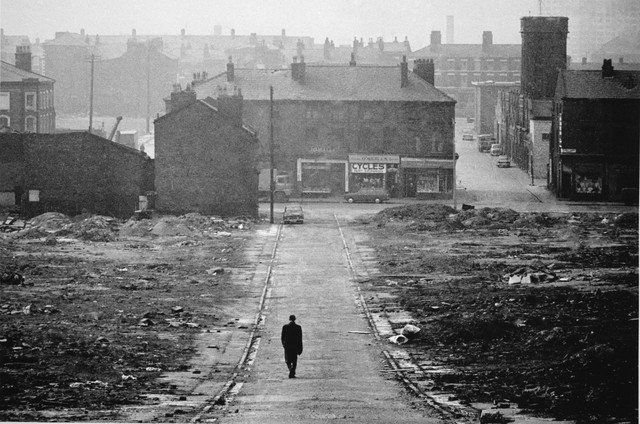Of Time and the City
Of Time and The City is both a love song and a eulogy to the directors birthplace of Liverpool. It is also a response to memory, reflection and the experience of losing a sense of place as the skyline changes and time takes it toll. Terence Davies' ode to Liverpool has wowed audiences and critics alike after being hailed as the highlight of the Cannes Film Festival where it received its premiere. This is a spectacular return to form by Davies, long-hailed as one of Britain’s greatest filmmakers. Of Time and the City is an illuminating and heartfelt work, powerfully evoking life in post-war Britain while exploring the nature of love, memory, and the toll that the passing years takes on the cities and communities that we cherish. This is no simple documentary; it is an entrancing piece of autobiographical cinema that reaches far beyond the city in which it is set, weaving a rich tapestry from archive and contemporary footage, music, voice, literary quotation, personal reminiscence and wickedly funny observation. Terence Davies is an English film director. He is noted for his recurring themes of
emotional (and sometimes physical) endurance, the influence of memory on everyday life and the potentially crippling effects of dogmatic religiosity on the emotional life of individuals and societies. Stylistically, Davies’ works are notable for their symmetrical compositions, “symphonic” structure and measured pace. He is the sole screenwriter of all his films. Due to his refusal to compromise, Davies’ output has been comparatively sporadic. His early short films, Children, Madonna and Child and Death and Transfiguration were screened together at film festivals throughout Europe and the U.S. as The Terence Davies Trilogy, winning numerous awards. To date he has released four feature films. The first two, Distant Voices, Still Lives and The Long Day Closes, are very autobiographical films set in 40’s and 50’s Liverpool; his two most recent films, The Neon Bible and the House of Mirth, are adaptations of novels by John Kennedy Toole and Edith Wharton, respectively.

